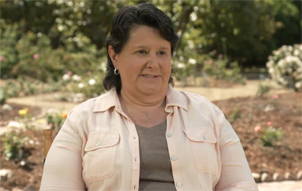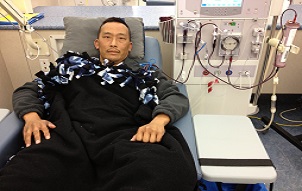If you remain interested in being a donor after your first contact with the transplant center, the staff will begin their evaluation process.
You will need to give them all information that they request. The transplant staff will ask about your financial situation and talk about who can give you physical help and emotional support throughout the donation process. Involving your loved ones in the educational part of the evaluation process can be helpful. They can learn about the donation surgery and recovery process and support you in your decision.
You will be asked to fully describe your reasons for thinking about donation and how it might affect your lifestyle (such as employment and family relationships). You will be given a complete physical and psychosocial evaluation and numerous medical tests to minimize any risk to your health and safety. The results of your evaluation should be kept confidential. The transplant candidate cannot access your personal information.
The length of time it takes to complete the evaluation process can vary. If the candidate’s transplant center is far away, you may be able to complete some tests at a hospital or lab near your home.
Here are examples of some of the tests you may be asked to complete as part of the evaluation:
- Blood Tests to check blood type compatibility between you and the transplant candidate.
- Tissue Typing: This blood test checks the tissue compatibility between you and the transplant candidate.
- Crossmatching: This blood test determines how the transplant candidate will react to your organ. A “positive” crossmatch means that your organ is incompatible with the candidate. A “negative” crossmatch means that your organ is compatible with the candidate.
- Antibody Screen: When a foreign substance (antigen) enters a person’s body, a protein substance (antibody) is created in response to that antigen. (Blood from transfusions and viruses are examples of antigens.) Results of this test will show if the transplant candidate has antibodies in his/her body that would react to your antigens.
- Blood Tests to Screen for Transmissible Diseases: These tests determine if you have HIV/AIDS, hepatitis, cancer, and other transmissible diseases.
- Urine Tests: A 24-hour urine sample is collected to look at your kidney function.
- Chest X-Ray and Electrocardiogram (EKG): These tests screen for heart and lung disease. Depending upon your age and medical history, other heart and lung tests may be needed.
- Radiologic testing: These tests help physicians view the organ you want to donate, including its blood vessel supply. They can include a CAT scan, MRI, and arteriogram.
- Psychosocial and/or Psychological Evaluation: This tool assesses your mental health, whether you feel pressure from others to donate, your ability to understand information and make an informed decision, and your daily life circumstances (such as the possible impact on your job, whether you would have any help while recovering from donation, and your family’s views about the donation).
- Gynecological examination: Female donors may receive a gynecological examination.
- Cancer screening: These tests may include a colonoscopy, mammogram, prostate exam, and skin cancer screening. Your transplant team will determine your individual needs.
Source: UNOS Living Donation
BLOOD TYPE COMPATIBILITY
|
Donor’s |
Recipient’s |
|
O |
O |
|
A |
A |
|
B |
B |
|
AB |
AB |
Note: The Rh factor (+ or -) in blood type is not important in compatibility.
Source: UNOS Living Donation




